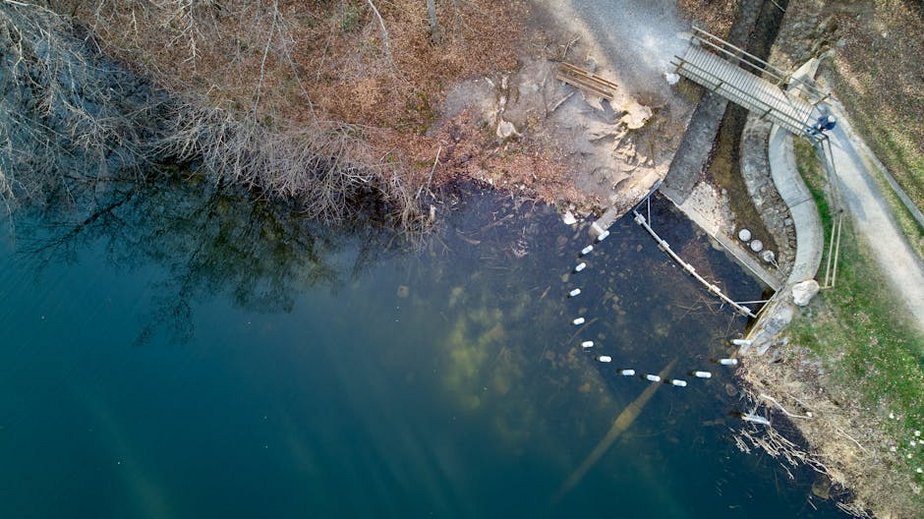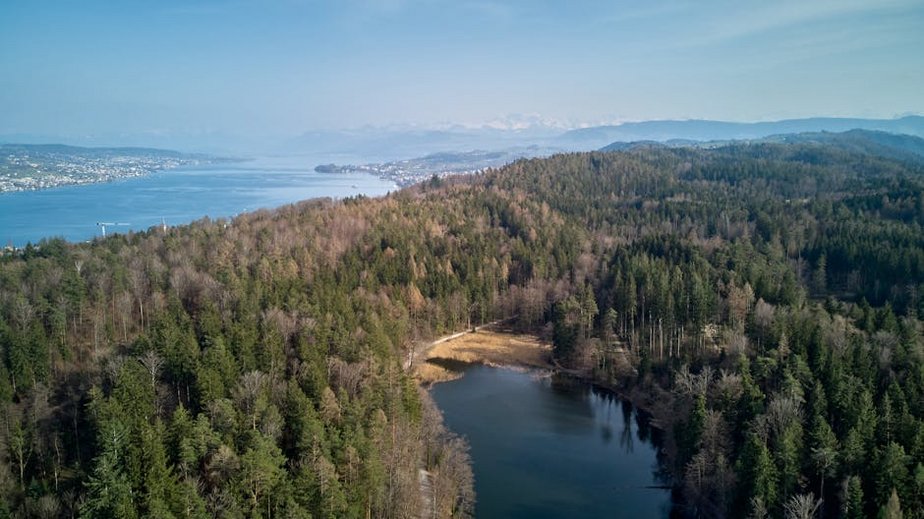Lake Zurich: Your Ultimate Guide to Switzerland’s Stunning Alpine Lake
Nestled against the backdrop of the snow-capped Swiss Alps, Lake Zurich offers one of Europe’s most breathtaking freshwater experiences that seamlessly blends natural beauty with sophisticated urban charm. This magnificent body of water stretches approximately 25 miles from the historic city of Zurich southeast toward the Alpine foothills, creating a stunning natural corridor that has captivated travelers for centuries. Whether you’re dreaming of peaceful lakeside strolls, exhilarating water sports, or cultural discoveries in charming waterside villages, Lake Zurich delivers an unforgettable Swiss experience that combines pristine nature with world-class amenities. The lake’s crystal-clear waters, maintained through Switzerland’s rigorous environmental standards, reflect the surrounding mountains and picturesque towns, creating postcard-perfect vistas at every turn. You’ll discover why this destination remains a perennial favorite among discerning travelers seeking both relaxation and adventure in one of Europe’s most spectacular settings.
Lake Zurich Essential Information – What Every Traveler Should Know
Before embarking on your Lake Zurich adventure, understanding the geographical and practical aspects will enhance your experience significantly. The lake spans approximately 34 square miles with a maximum depth of 469 feet, making it one of Switzerland’s larger lakes. Its unique elongated shape creates diverse microclimates along its shores, from the urban energy of Zurich city to the tranquil, vineyard-dotted landscapes of the eastern reaches. The lake is easily accessible from Zurich Airport, which serves as a major international hub with direct flights from numerous US and European cities. English is widely spoken throughout the region, though learning a few basic German phrases will enrich your interactions with locals. The Swiss Franc (CHF) is the official currency, though many establishments accept Euros (often with change given in Francs), and credit cards are widely accepted. The area maintains excellent infrastructure with reliable public transportation, clean facilities, and comprehensive tourist services that cater to international visitors.
Geography and Climate – Understanding the Region
- Located in northern Switzerland at 1,332 feet above sea level, creating a moderate climate with distinct seasons
- Surrounded by the Swiss Plateau with views of the Glarus Alps to the south, offering spectacular mountain backdrops
- Water temperatures range from 35°F in winter to 75°F in summer, perfect for seasonal water activities
- Budget travelers can manage with $100-150 daily by staying in hostels, using public transportation passes, and enjoying picnic lunches with local market finds
- Mid-range travelers should budget $250-400 daily for comfortable hotels, restaurant meals, and guided activities like boat tours or museum entries
- Luxury experiences range from $600-1000+ daily featuring five-star hotels, fine dining, private guides, and premium experiences like private yacht charters
- Zurich Tourism Official Website
- Switzerland Tourism Authority
Cultural Context and Historical Significance
Lake Zurich has been a vital transportation route and settlement area since Roman times, with evidence of prehistoric lake dwellings discovered along its shores. The region developed through medieval trade routes, with many surrounding towns maintaining beautifully preserved historic centers. Today, it represents the perfect blend of Swiss tradition and modernity, where you can experience everything from traditional folk festivals to contemporary art exhibitions. The lake has inspired countless artists, writers, and composers throughout history, including James Joyce who wrote much of Ulysses while living in Zurich. This cultural richness adds depth to your visit, whether you’re exploring museum collections or simply appreciating the landscape that has captivated creative minds for generations.

Lake Zurich Planning Your Trip – Seasons, Budgets, and Preparation
Strategic planning transforms a good Lake Zurich visit into an extraordinary experience. The region offers distinct seasonal charms, from vibrant summer activities to magical winter landscapes, each requiring different preparation approaches. Your budget should account for Switzerland’s higher cost of living while recognizing that value comes through exceptional quality and experiences. For most travelers, allocating 4-5 days allows thorough exploration of both the urban and natural attractions without feeling rushed. Consider purchasing a Swiss Travel Pass if planning extensive travel on trains, boats, and buses, as it offers excellent value and convenience. Advance reservations are recommended for popular activities like boat tours during peak season, while shoulder seasons offer more flexibility. Remember to check passport and visa requirements well in advance, though US and EU citizens typically enjoy visa-free travel for stays up to 90 days.
Best Time to Visit Lake Zurich
The ideal time for your Lake Zurich adventure depends entirely on your preferred experiences. Summer (June-August) offers warm weather perfect for swimming, boating, and lakeside dining, with temperatures averaging 68-75°F. This peak season brings vibrant energy but also larger crowds and higher prices. Spring (April-May) and autumn (September-October) provide milder temperatures (50-65°F), fewer tourists, and stunning natural displays of blooming flowers or fall foliage. These shoulder seasons offer excellent value and comfortable conditions for hiking and cycling. Winter (November-March) transforms the region into a magical wonderland with Christmas markets, crisp air, and snow-dusted landscapes, though some water activities are limited. The lake rarely freezes completely due to its depth, but surrounding areas offer winter sports opportunities within easy reach.
Budget Planning and Costs for Lake Zurich
Essential Preparation Checklist
Proper preparation ensures you maximize your Lake Zurich experience regardless of season. Pack layered clothing suitable for changeable mountain weather, including waterproof jackets and comfortable walking shoes. Switzerland’s electrical outlets require Type J plugs (230V), so bring appropriate adapters for your devices. Download essential apps like SBB Mobile for public transportation schedules and mobile tickets. Inform your bank of international travel to ensure credit/debit cards work smoothly. Purchase comprehensive travel insurance that covers medical emergencies and activity-related incidents. Learn basic German phrases like “Guten Tag” (good day) and “Danke” (thank you) to enhance local interactions. Finally, make digital copies of important documents and store them securely in cloud storage accessible from your mobile device.
Lake Zurich Top Attractions and Activities – Must-Experience Adventures
Lake Zurich offers an incredible diversity of experiences that cater to every travel style, from active adventurers to culture enthusiasts and relaxation seekers. The lake itself serves as the central attraction, with numerous access points for swimming, boating, and simply soaking in the magnificent views. The surrounding towns each possess unique character and attractions, from Rapperswil’s medieval castle to Meilen’s prehistoric pile dwellings. You can easily fill multiple days exploring museums, hiking trails, cultural sites, and culinary experiences without ever repeating activities. The excellent public transportation system, including regular boats that crisscross the lake, makes hopping between attractions both convenient and scenic. Whether you prefer structured tours or independent exploration, you’ll find countless ways to create your perfect Lake Zurich itinerary.
Must-See Highlights Around Lake Zurich
Begin your exploration in Zurich itself, where the lake meets the city through beautifully maintained promenades and parks. The Zurich Opera House and Kunsthaus art museum offer world-class cultural experiences just steps from the water. Don’t miss taking a boat cruise to Rapperswil, known as the “Town of Roses” for its magnificent rose gardens and well-preserved medieval architecture. The Swiss National Museum in Zurich provides fascinating insights into the country’s history and culture. For nature lovers, the Pfannenstiel hiking trail offers breathtaking panoramic views of the entire lake region. The Lindt Home of Chocolate museum in Kilchberg provides a delicious interactive experience for visitors of all ages. Each of these highlights offers unique perspectives on the region’s natural beauty, cultural richness, and historical significance.
Hidden Gems and Local Favorites
Beyond the well-known attractions, Lake Zurich conceals numerous treasures that reward curious travelers. The small town of Horgen features a beautiful lakeside promenade often overlooked by tourists, with excellent restaurants serving fresh fish from the lake. The island of Ufenau, accessible by boat from Rapperswil, offers a peaceful retreat with a historic monastery and restaurant serving traditional Swiss cuisine. The wine-growing region around Stäfa produces excellent wines that are rarely exported, offering authentic tasting experiences. For a unique perspective, join locals at the numerous badis (public swimming areas) that dot the shoreline, some with sophisticated restaurants and bars. The Zimmerberg community trail connects traditional villages through beautiful countryside, offering glimpses of rural Swiss life that many visitors miss.
Lake Zurich Practical Travel Information – Transportation, Accommodation, and Logistics
Navigating the Lake Zurich region proves remarkably efficient thanks to Switzerland’s world-class transportation infrastructure. The area benefits from an integrated network of trains, buses, boats, and bicycles that make exploring both convenient and enjoyable. Zurich Hauptbahnhof (main station) serves as the transportation hub, with frequent connections to all lakeside communities and beyond. The Zürichsee-Schifffahrtsgesellschaft (ZSG) operates an extensive fleet of boats that function as both transportation and sightseeing vessels, with various pass options available. Accommodation ranges from luxury city hotels to charming countryside inns, with pricing varying significantly by season and location. Advance booking is recommended, especially during summer months and major events. Most visitors find the Swiss Travel Pass offers excellent value, covering trains, buses, boats, and museum entries throughout the country.
| Category | Options/Features | Price Range (USD) |
|---|---|---|
| Budget Accommodation | Hostels, guesthouses, budget hotels | $80-150/night |
| Mid-Range Hotels | 3-4 star hotels, boutique properties | $200-350/night |
| Luxury Properties | 5-star hotels, luxury resorts, historic properties | $400-800+/night |
| Transportation Pass | Swiss Travel Pass (8 days) | $450-600 |
| Boat Tours | Guided tours, dinner cruises | $30-120/person |


